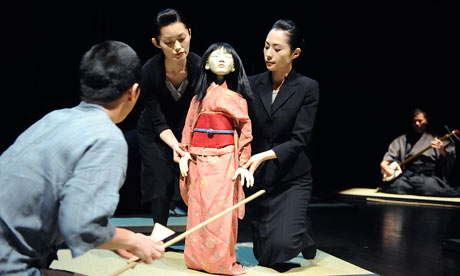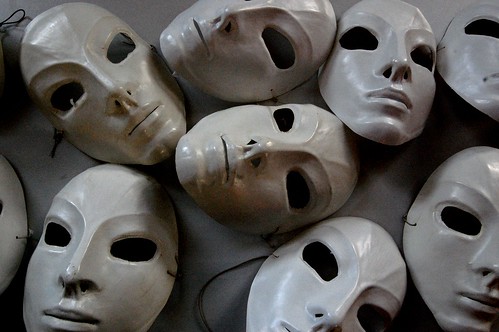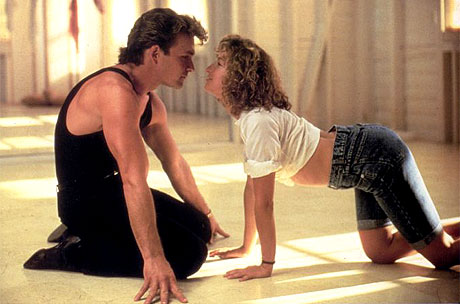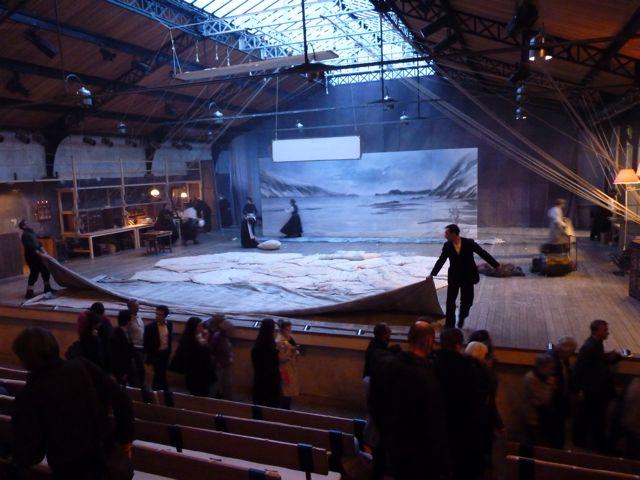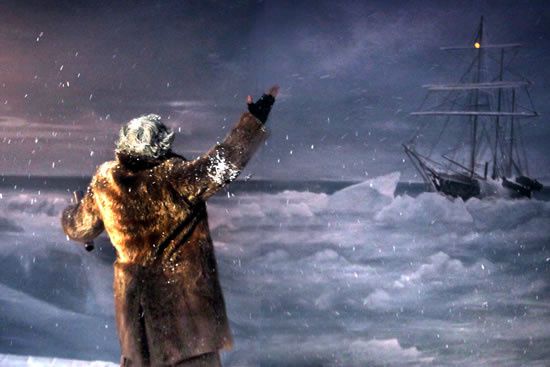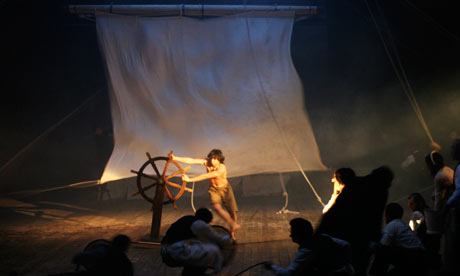Exercise: Balance the Stage
A ball was placed in the centre of the room. An actor enters and stands in the centre behind the ball (this is the prime spot for any actor...centre stage. The stage is balanced. The first actor moves away from the centre to the side. The stage is now unbalanced. Another actor enters to balance the stage. The 2nd actor then is in major, and moves around the space - the 1st actor moving in order to maintain the balance of the stage. Eventually the 1st actor decides the 2nd actor is worthy of the space and stops moving, which causes the stage to then become unbalanced. Then a 3rd actor enters to balance the stage. The 2nd actor then stops to look at the 1st and 3rd actor, so decide which group he wants to join. Then eventually larger groups play together. IT WAS REALLY COMPLICATED!! BUT ESSENTIALLY - JUST BALANCE THE STAGE.
A little bit like the balance between good and evil in LOST...
When working in larger groups, the exercise became a chorus exercise. And a 'chorifer' would lead the group...somehow. It's still a bit of a mystery to me. Philippe says a chorifer is somebody the group is happy to move around. He said a good chorifer is likely to be a good director. The Chorifer is "somebody who has the talent to take on his shoulders the contradictions and problems of the group and do something beautiful with it." It's a mystery to me because I don't really know how to do it. From watching others though it seems that a good chorifer moves in a way that others can follow (and feel safe) - clear, confident, patient, a good aura. Yep. That sounds like a good director! I need to chill out about my chorifer skills. Typically, I want to be the hero and a wonderful chorifer, but it's not really happening right now. I can follow well though. I'm a bit like Phil Goff right now. I'd like to be a good leader but I don't really have the pinache for it yet.
- Philippe spoke about how choruses are very political. There is a fight for territory. Usually they are united, but sometimes they split (e.g one for Creon, one for Antigone). If some people decided, when a third member entered the stage, to leave their group and join another's, he guided them to look long and hard at the people in each chorus and then walk slowly when making the move. It is a big deal to leave your country for another's. But it is real - peoples do it all the time. My history is bad/non-existent, but the Soviet union kept on being referred to.
- Numbers of Greek tragedy choruses should always be an uneven number. e.g. 7 or 11. This is so they can't split easily I think.
- Balance of the stage is a core rule of theatre. Comedy. Greek Tragedy. All the same.
Exercise: Move as Colours
Kikorangi blue...
This could be a neutral mask exercise, but we didn't do it with masks. Philippe would say a colour, and we had to move like the colour, and then add text.
- Your text must have a different rhythm from the rhythm of your movement.
Me as Red (staccato and firey) - good movement but talked too fast. "A bit."
Me as Yellow (light, jumpy, happy) - "Me, I like Guy. ON THE STAGE"...
I was better in yellow because I was a bit silly and I had fun. Always key for me. Pleasure!




















